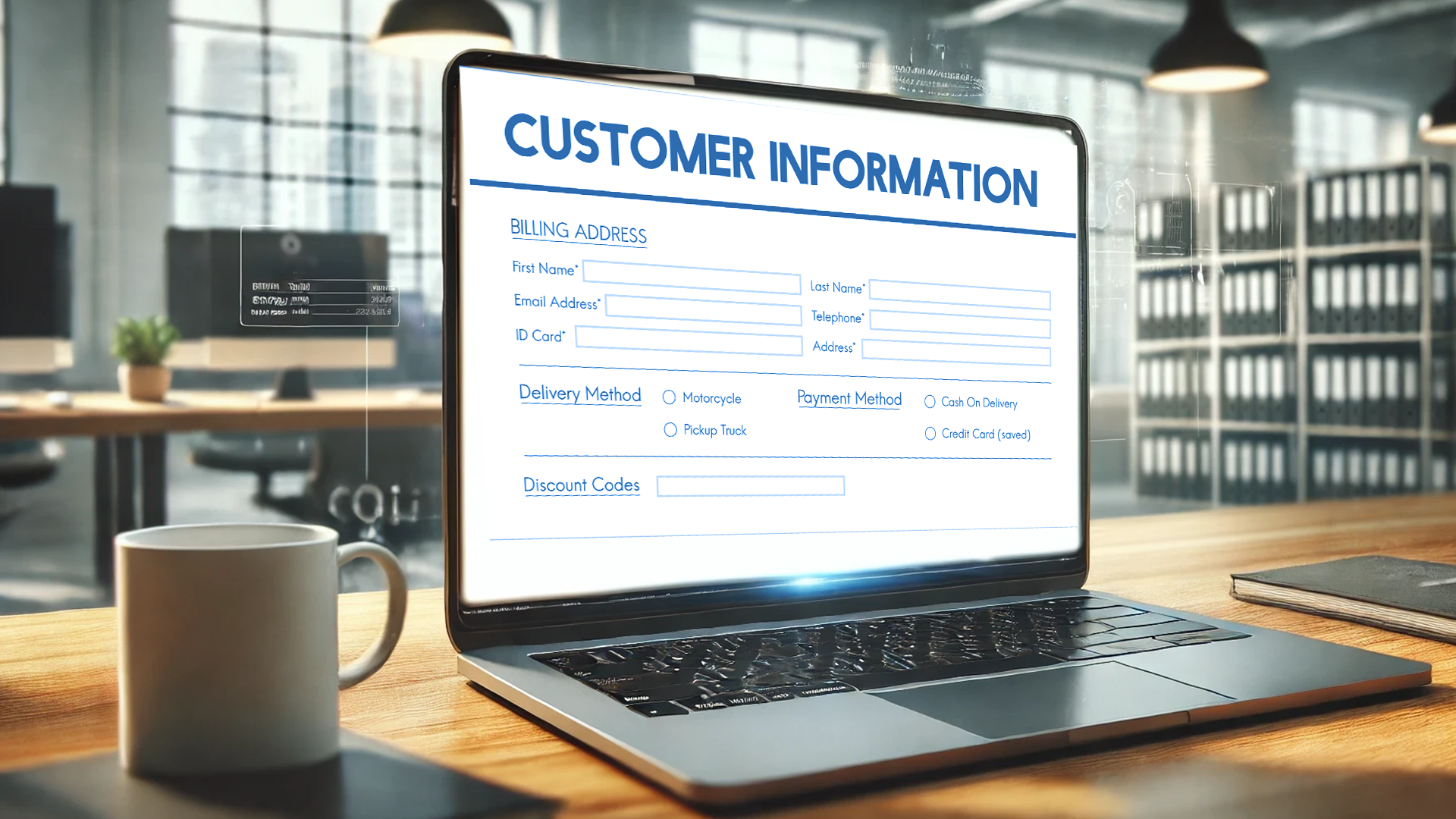
Thank you
Our team of industry domain experts combined with our guaranteed SLAs, our world class technology .


Get Immediate Help
In today’s digital world, businesses rely heavily on web applications to interact with customers, process transactions, and store sensitive data. However, this also makes them prime targets for cybercriminals. Protecting these web applications is crucial for safeguarding sensitive customer data, and one of the most effective ways to do so is by implementing Web Application Firewall (WAF) services.
In this blog, we'll dive into how Web Application Firewall services work, their key benefits, and why they are essential for protecting your customers' sensitive data in the face of evolving cybersecurity threats.
.png)
A Web Application Firewall is a security tool designed to monitor, filter, and block HTTP traffic to and from web applications. Unlike traditional firewalls that protect networks at the transport layer, WAFs protect the application layer. They defend web applications from common cyber threats such as SQL injection, cross-site scripting (XSS), and cross-site forgery.
By using a set of customisable rules, WAFs filter out potentially harmful traffic and protect web applications from malicious attacks. In essence, they act as a shield between your web application and the internet, preventing unauthorised access to sensitive customer data.

1. Real-Time Traffic Monitoring: A WAF constantly monitors incoming and outgoing traffic to your web applications in real-time. It detects any unusual patterns or behaviours that could indicate an attack, allowing your security teams to take swift action.
2. Blocking Common Threats: WAFs protect against common web application threats, such as SQL injection, XSS, and DDoS attacks. By blocking these threats, a WAF prevents unauthorised access to sensitive customer data stored within your web applications.
3. Cloud-Based WAF Services: Many modern WAFs are cloud-based, allowing for greater scalability and flexibility. Cloud-based WAF services can be easily integrated with web applications and offer continuous updates to protect against the latest threats.
4. Customisable Security Rules: WAFs allow security teams to configure rules based on the specific needs of their applications. This means you can prioritise certain types of traffic, block IP addresses, or create custom filters to match your security requirements.
5. Data Encryption: WAFs enhance data security by ensuring that all communication between the web application and its users is encrypted. This prevents cybercriminals from intercepting sensitive customer data during transmission.

1. Enhanced Data Protection: The primary benefit of a WAF is its ability to protect sensitive customer data from being accessed by unauthorised individuals. By blocking potential attack vectors, WAFs reduce the risk of data breaches.
2. Compliance with Data Protection Regulations: Many industries, particularly those handling sensitive customer data, are required to comply with strict data protection regulations. Implementing a WAF helps businesses meet compliance standards such as GDPR, PCI DSS, and HIPAA by providing a higher level of data security.
3. Improved Application Performance: By filtering malicious traffic and preventing DDoS attacks, WAFs can ensure that your web applications continue to run smoothly and efficiently. This leads to a better user experience and fewer service disruptions.
4. Cost-Effective Security Solution: Investing in a WAF can be more cost-effective than dealing with the aftermath of a data breach. The cost of implementing WAF services is significantly lower than the potential financial and reputational damage caused by a cyberattack.
5. Automated Threat Detection and Response: WAF services often come with automated threat detection and response mechanisms, reducing the need for manual intervention. This frees up your security teams to focus on other critical tasks while ensuring that threats are dealt with promptly.

Web Application Firewalls protect sensitive customer information by acting as a gatekeeper between the user and the application. They inspect all incoming traffic for signs of malicious activity, such as attempts to inject code into web forms or access data they shouldn’t.
Here’s how WAFs play a key role in protecting customer data:
- Blocking Unauthorised Access: A WAF ensures that only legitimate traffic is allowed to reach your web application. It prevents cybercriminals from gaining access to sensitive customer data by blocking malicious requests.
- Securing User Authentication: Many WAFs include features that help secure the user authentication process. By preventing brute-force attacks, credential stuffing, and session hijacking, WAFs protect customer accounts from being compromised.
- Preventing Data Leakage: WAFs can detect and block any attempts to exfiltrate sensitive data from your web applications. This prevents cybercriminals from stealing personal and financial information.

1. Deploy in the Cloud: For scalability and flexibility, consider deploying a cloud-based WAF solution. This allows you to protect web applications no matter where they are hosted and ensures that your firewall is always up to date with the latest threat intelligence.
2. Customise Security Rules: Tailor the WAF's rules to meet the unique needs of your web applications. This can include blocking specific IP addresses, filtering certain types of traffic, and setting stricter rules for sensitive customer data.
3. Enable Data Encryption: Ensure that all traffic between your web application and users is encrypted using SSL/TLS. This prevents cybercriminals from intercepting sensitive data during transmission.
4. Regularly Update WAF Policies: Web security is an ever-evolving field, and cyber threats are constantly changing. Make sure to regularly review and update your WAF policies to address new vulnerabilities and threats.
5. Integrate with Other Security Tools: A WAF should be just one part of a broader security strategy. Integrate your WAF with other security tools such as Intrusion Detection Systems (IDS) and Security Information and Event Management (SIEM) systems for comprehensive protection.

Given the increasing frequency of cyberattacks and data breaches, businesses can no longer afford to overlook the importance of web application security. Implementing a Web Application Firewall is a crucial step in safeguarding sensitive customer information and protecting your business from costly data breaches.
WAFs offer real-time protection, customisable security policies, and a cost-effective way to ensure compliance with data protection regulations. By implementing best practices such as cloud-based WAF deployment and regular updates, businesses can significantly enhance their security posture.
At Microminder CS, we specialise in offering cutting-edge Web Application Firewall services tailored to your business’s unique needs. Our cloud-based WAF solutions are designed to protect sensitive customer data, prevent unauthorised access, and ensure compliance with industry standards.
In the context of protecting sensitive customer data with Web Application Firewall (WAF) services, the following Microminder CS services would be most helpful for organisations:
1. Web Application Security Services
These services focus on identifying and mitigating vulnerabilities within web applications. Microminder CS can offer regular security assessments, vulnerability scanning, and penetration testing for web applications. By proactively finding weaknesses and applying security patches, organisations can protect their customer data from common threats like SQL injections and cross-site scripting (XSS).
2. Cloud-Based WAF Solutions
Microminder’s cloud-based WAF services provide real-time traffic monitoring, automated threat detection, and the ability to block malicious traffic aimed at compromising customer data. Cloud-based solutions ensure flexibility and scalability, allowing businesses to adapt security measures based on traffic levels and the complexity of the threats.
3. Data Protection and Encryption Services
Implementing robust data encryption methods and ensuring that all communication between users and web applications is secure helps protect sensitive information from being intercepted or stolen. Microminder CS offers data encryption solutions that enhance the security of customer data during transmission.
4. Security Compliance Solutions
Many industries, especially those handling sensitive customer data (like financial institutions and healthcare providers), need to comply with data protection standards such as GDPR and PCI DSS. Microminder CS assists organisations in ensuring compliance with these regulations by offering compliance audits and guidance on securing web applications.
5. Managed Detection and Response (MDR) Services
Microminder’s MDR service provides 24/7 monitoring, detection, and response capabilities. By combining threat intelligence and automated response actions, businesses can immediately mitigate potential breaches before they compromise customer data. This service complements a WAF by providing an additional layer of defence and incident management.
6. Vulnerability Management Services
Proactive vulnerability management is essential for maintaining the security of web applications. Microminder CS regularly scans for weaknesses, applies patches, and strengthens security measures to ensure that organisations stay ahead of potential threats that could compromise customer data.
By leveraging these services, organisations can significantly enhance the security of their web applications, protect sensitive customer information, and ensure compliance with industry regulations. Microminder CS can provide a comprehensive security solution tailored to each organisation’s specific needs, ensuring maximum protection against evolving cyber threats.
In conclusion, the protection of sensitive customer data has never been more critical in today’s digital landscape. With the increasing sophistication of cyber threats, businesses must adopt advanced measures like Web Application Firewall (WAF) services to safeguard their customer information. Implementing robust WAF solutions along with complementary security services such as cloud-based protection, data encryption, and vulnerability management can significantly reduce the risk of data breaches.
By partnering with a reliable security provider like Microminder CS, organisations can ensure that their web applications remain secure, compliant, and resilient against evolving cyber threats. Investing in these services not only fortifies your business but also instills confidence and trust in your customers, ensuring long-term success
Don’t Let Cyber Attacks Ruin Your Business
Call
UK: +44 (0)20 3336 7200
KSA: +966 1351 81844
UAE: +971 454 01252
Contents
To keep up with innovation in IT & OT security, subscribe to our newsletter
Recent Posts
Penetration Testing | 10/11/2025
Cloud Security | 07/11/2025
Cybersecurity | 06/11/2025
How does a WAF protect sensitive customer data?
A WAF protects sensitive data by identifying and blocking threats before they can exploit vulnerabilities in web applications. It prevents attackers from accessing or stealing sensitive information such as credit card details, personal identification, and login credentials.Why is a WAF important for businesses with online applications?
Businesses with online applications are prime targets for cyberattacks. A WAF provides an additional layer of security, preventing unauthorised access to customer data and ensuring compliance with data protection regulations.What are the key benefits of using a WAF?
- Protection against common web-based attacks like SQL injection and XSS - Monitoring and filtering of HTTP traffic to identify suspicious activities - Improved data security and reduced risk of data breaches - Compliance with industry standards and data privacy regulationsWhat are cloud-based WAF services?
Cloud-based WAF services provide web application security without the need for on-premises hardware. These services are delivered through the cloud, offering scalability, ease of deployment, and real-time protection against online threats.How do I choose the right WAF for my business?
When selecting a WAF, consider factors such as ease of deployment, scalability, real-time threat detection, integration with other security tools, and compliance support. It’s essential to choose a WAF that aligns with your business's specific security needs.